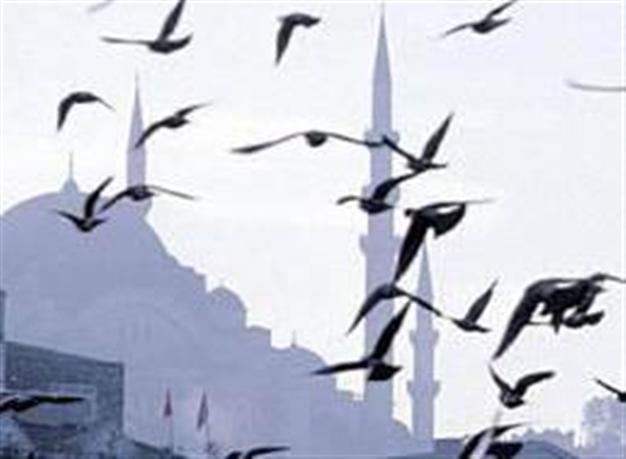'Black Sky, Black Sea' by İzzet Celasin
William Armstrong - william.armstrong@hdn.com.tr
 ‘Black Sky, Black Sea’ by İzzet Celasin, translated by Charlotte Barslund (Maclehose Press, £8.99, 338 pages)
‘Black Sky, Black Sea’ by İzzet Celasin, translated by Charlotte Barslund (Maclehose Press, £8.99, 338 pages) The publisher has put an opportunistic grab-line hinting at protests and “Taksim Square” on the cover of İzzet Celasin’s “Black Sky, Black Sea.” The novel’s focus, however, isn’t on last year’s Gezi Park protests, but rather the turmoil surrounding Turkey’s 1980 military coup. It’s narrated by the idealistic 18-year-old Oak, and follows him as he gets caught up in the political turbulence of the late 1970s and early 80s, is mesmerized by a hard-boiled leftist activist, and experiences the pain and confusion of steadily lost idealism on both fronts. Although billed as a thrilling page turner, by the end I found myself turning those pages with a tired sigh.
Our impressionable protagonist is bowled over by the glamorous and dangerous Zuhal, who protects him amid the carnage of May 1, 1977, when security forces staged a notorious massacre of leftist demonstrators in Taksim. The experience prompts some of the kind of ripe prose that persists throughout the rest of the book: “The first thing I noticed were her eyes,” (eyes which are, by the way, “dark and angry”). Following their brief fling, Oak loses Zuhal in the tumult of the subsequent months, experiences various stages of infatuation, and goes to great lengths to satisfy it by finding her again.
However, slowly, their two paths diverge, with Oak becoming increasingly depoliticized and Zuhal becoming deeply involved in armed struggle. By the time the coup comes, Zuhal is engaged in full blown armed resistance as a mountain guerilla, while for Oak the military’s intervention is a mere inconvenience. There is a link between his political convictions and his romantic obsession, and his depoliticization parallels a confusing disillusion with Zuhal herself. While still bewitched mesmerized and disturbed by their encounter, his interest in her cause wanes, coming to see in it a “primitive and almost religious blood feud where the only thing that mattered was taking an eye for an eye.” Eventually, he only seems to want to find Zuhal again to tie up loose ends.
Whether you find Oak’s obsessions convincing or not (I don’t), one of the novel’s biggest problems is that for such a turbulent and violent period, it has a plodding, jarringly traditional style. I can’t say whether that’s down to the translation or the original text, (impressively, Celasin wrote it in Norwegian, his second language), but it has a strangely pedestrian, lifeless quality. Not unrelated to this, the book also lacks any tangible political bite; a political novel without any real political thrust makes for quite a bloodless read. Disenchantment doesn’t come across something essential or life-changing, but simply something to shrug the shoulders about. Ultimately, I found myself doing the same.
“Black Sky, Black Sea” apparently draws on Celasin’s personal experiences and the events that led to his eventual exile from Turkey to Norway, where the book was first published. But ultimately it fails to live up to its attractive blurb. All told, Orhan Pamuk’s more original and sophisticated “The Silent House” [which I reviewed here] should still be the first port of call for those looking for a fictional reflection on the same troubled period.
Notable recent release
‘Travel and Artisans in the Ottoman Empire: Employment and Mobility in the Early Modern Era’ by Suraiya Faroqhi
(I.B. Tauris, £59, 320 pages)
William Armstrong,
 ‘Black Sky, Black Sea’ by İzzet Celasin, translated by Charlotte Barslund (Maclehose Press, £8.99, 338 pages)
‘Black Sky, Black Sea’ by İzzet Celasin, translated by Charlotte Barslund (Maclehose Press, £8.99, 338 pages) 